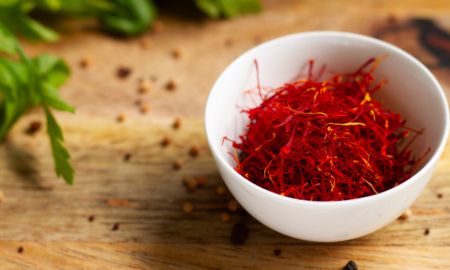
Indian Shrub Ashwagandha, a Natural Cure to Health These Issues

Ever since natural products like borage oil have gained popularity for their healthcare benefits, discoveries in botanicals have become a focus for scientists. And several studies have shown that among the most beneficial of natural products is Ashwagandha, the mystical Indian shrub.

Pinterest | Among the most beneficial of natural substances is Ashwagandha
For years people have utilized the roots of Ashwagandha for therapeutic purposes, and the spice is otherwise called Indian Ginseng or Winter Cherry. The name “Ashwagandha” literally means “the smell of a horse.” It sounds weird, we know but trust us, there’s nothing weird about the advantages this shrub guarantees.
Professionals utilize it as an overall tonic to help reenergize and diminish pressure and tension, and research has indicated that it may be advantageous for specific medical conditions like Alzheimer’s as well.
In this article, we’ll take a look at the conventional purposes for which Ashwagandha is used and try to explore the scientific proof behind its medical advantages.
What are Ashwagandha’s medical advantages?
Most studies so far have shown evidence of Ashwagandha being a remedy for:
- Stress
It’s said to have a calming impact on pressure and stress. In a recent report, scientists discovered that taking 240 mg of Ashwagandha every day fundamentally decreases anxiety impacts.
Read – Tips for Dealing with COVID-19 Stress

Getty Images | Ashwagandha is said to have a calming impact on pressure and stress
- Joint inflammation
Ashwagandha works best as a pain-reliever and also a pain preventer. A 2015 research done with 125 patients with joint issues showed that the plant has the potential to treat rheumatoid joint pain.
- Heart issues
Ashwagandha helps solve multiple medical conditions like hypertension, cholesterol, chest ache, coronary illness, etc. It has been found that the plant’s root essence can upgrade a person’s cardio-respiratory endurance, which in turn, can improve the heart’s wellbeing.
- Alzheimer’s treatment
A 2011 report indicated that Ashwagandha could moderate memory loss in patients with neurodegenerative conditions like Alzheimer’s, Huntington’s illness, and Parkinson’s sickness.
Read – How Well Do You Know Alzheimer’s Disease
- Cancer treatment
A couple of other studies have found that the plant can stop cell development in specific cancer types.
- Insomnia
In 2017, research done in Japan discovered that Ashwagandha might significantly affect those who battle with sleep deprivation. It was found that the water essence extracted from its leaves contains Tri-Ethylene Glycol (TEG), a synthetic that allows a person to peacefully sleep.

Dreamstime | Research has shown that Ashwagandha may significantly help those who battle with sleep deprivation
Is ashwagandha safe from side-effects?
Although there’s no evidence that shows that high dosages of Ashwagandha can result in side effects, it’s probably wise not to take a lot of the shrub in one go since it may upset the stomach. Additionally, doctors advise that pregnant ladies not take Ashwagandha for it will trouble the embryo.
What’s more, some manufacturing companies may use fake Ashwagandha in their products, and we should be wary of them. As indicated by the National Center for Complementary and Integrative Health, the medicinal content present in commercial products might be excess of what’s advisable for humans. Thus, it’s best to explore and buy the right product to avoid illnesses.
Conclusion
The medicinal chemicals present in Ashwagandha help in calming the mind, lowering pulse rate, and modifying the immune system. As they’re available as supplements, we suggest you consult a local doctor before buying any commercially sold product.
More inHealthy Trends
-
`
Are Popular Diet Trends Actually Good for Your Heart?
Diet trends grab headlines every year, promising everything from glowing skin to dramatic weight loss. But when it comes to the...
July 30, 2025 -
`
Why Are Men Taller Than Women? New Genetic Study Finds Clue
For centuries, the average height difference between men and women has been noticeable—men generally stand about five inches taller. While environment...
July 23, 2025 -
`
How Upcycled Beauty Ingredients Are Reshaping the Industry’s Future
The beauty industry is going through a big shift — and it’s not just about trends. As waste problems grow and...
July 17, 2025 -
`
A Look Inside Faith Kipyegon’s Groundbreaking Mile Run in Paris
Last week in Paris, Faith Kipyegon returned to a place she knows well: Stade Sébastien Charléty. But this time, she wasn’t...
July 9, 2025 -
`
Dairy Is Making a Major Comeback — And Health Shoppers Are Loving It
Just a few years ago, dairy sat quietly in the back seat while plant-based alternatives took the spotlight. Now, it’s stepping...
July 4, 2025 -
`
Does Aging Cause Dental Problems?
Aging doesn’t automatically mean losing teeth or developing gum disease. In fact, older adults today are holding onto more of their...
June 25, 2025 -
`
How Upcycled Ingredients Are Shaping the Future of Cosmetics
What used to end up in bins or compost heaps is now finding a new life inside skincare bottles and beauty...
June 18, 2025 -
`
Rock Legend Rod Stewart Trains to Break Sprint Record at 80
Age isn’t slowing Rod Stewart down. Known worldwide for his legendary voice, stadium-filling tours, and timeless hits like “Maggie May”, the...
June 11, 2025 -
`
The Truth Behind Detox Diets – Health Boost or Risky Trend?
It’s hard to scroll through your feed without seeing someone sipping green juice with promises of instant energy, glowing skin, and...
June 3, 2025














You must be logged in to post a comment Login